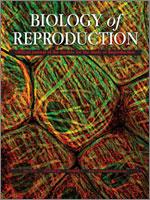Because the genetic diversity of the laboratory mouse (Mus musculus) is very limited, wild-derived strains from this genus could provide invaluable experimental models for studies of mouse genetics and epigenetics such as quantitative trait locus analysis. However, such strains generally show poor reproductive performance under conventional husbandry conditions, so their use for large-scale analyses has been limited. This study was undertaken to devise assisted reproductive technologies (ARTs) for the efficient production of offspring in two wild-derived strains, MSM/Ms and JF1/Ms (Mus musculus molossinus). First, as females of these strains are poor responders to equine chorionic gonadotropin (eCG) stimulation, we examined the efficiency of superovulation by injecting anti-inhibin serum followed by human chorionic gonadotropin (hCG). Approximately four to six times more oocytes were ovulated than with eCG-hCG treatment in both strains, reaching ∼25–30 oocytes per female. Consequently, the procedures for in vitro fertilization using these superovulated oocytes and cryopreservation of embryos and spermatozoa could be optimized for both of the wild-derived strains. However, MSM/Ms embryos but not JF1/Ms embryos failed to develop to term after embryo transfer because of intrauterine death at mid to late gestation. We were able to overcome this obstacle by cotransfer of these embryos with those from laboratory strains combined with treatment of recipient females with an immunosuppressant (cyclosporin A). Thus, a series of ARTs essential for efficient production and preservation of the wild-derived strains were successfully devised. These technologies will facilitate systematic studies of mouse genetics and epigenetics using a wider range of genetic diversity than currently available in the genus Mus.
How to translate text using browser tools
15 February 2012
Efficient Production of Offspring from Japanese Wild-Derived Strains of Mice ( Mus musculus molossinus) by Improved Assisted Reproductive Technologies
Ayumi Hasegawa,
Keiji Mochida,
Shogo Matoba,
Kazuya Yonezawa,
Akihiko Ohta,
Gen Watanabe,
Kazuyoshi Taya,
Atsuo Ogura

Biology of Reproduction
Vol. 86 • No. 5
May 2012
Vol. 86 • No. 5
May 2012
cryopreservation
embryo
inhibin
spermatozoon
superovulation




